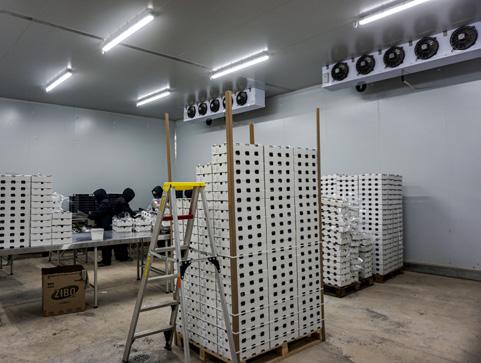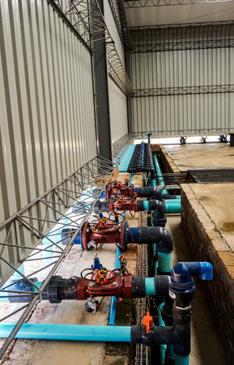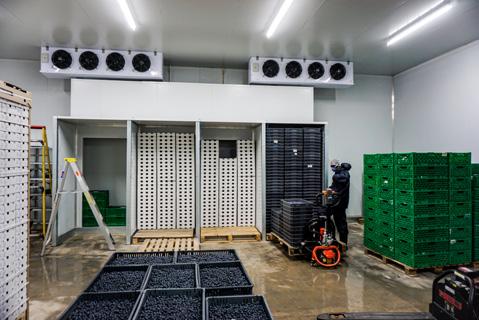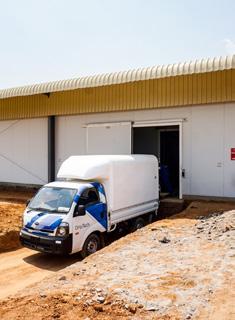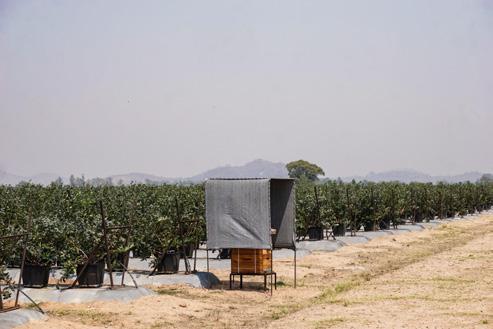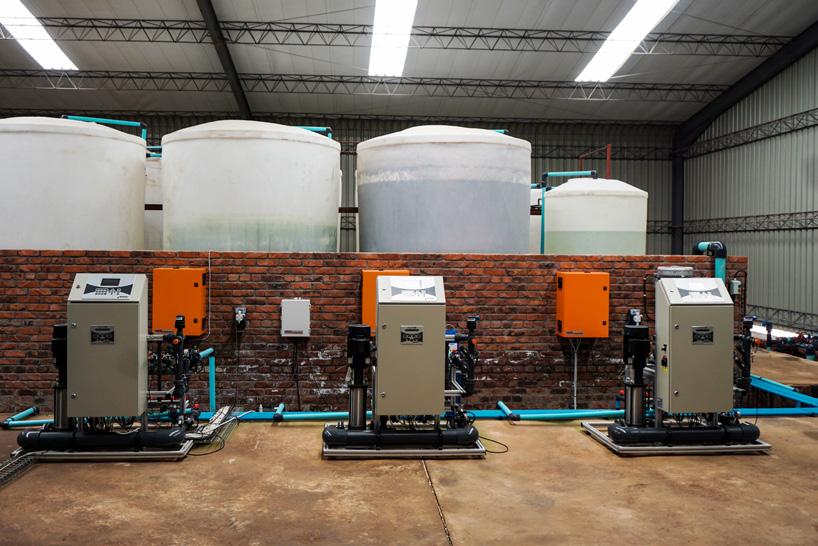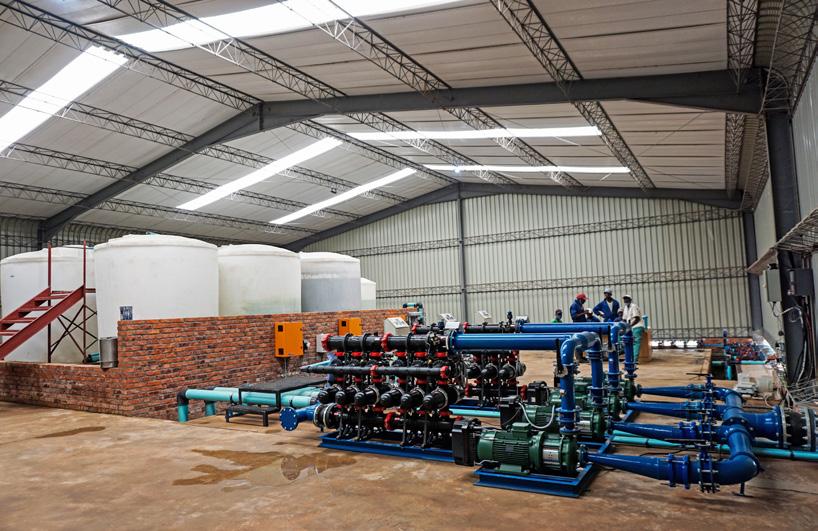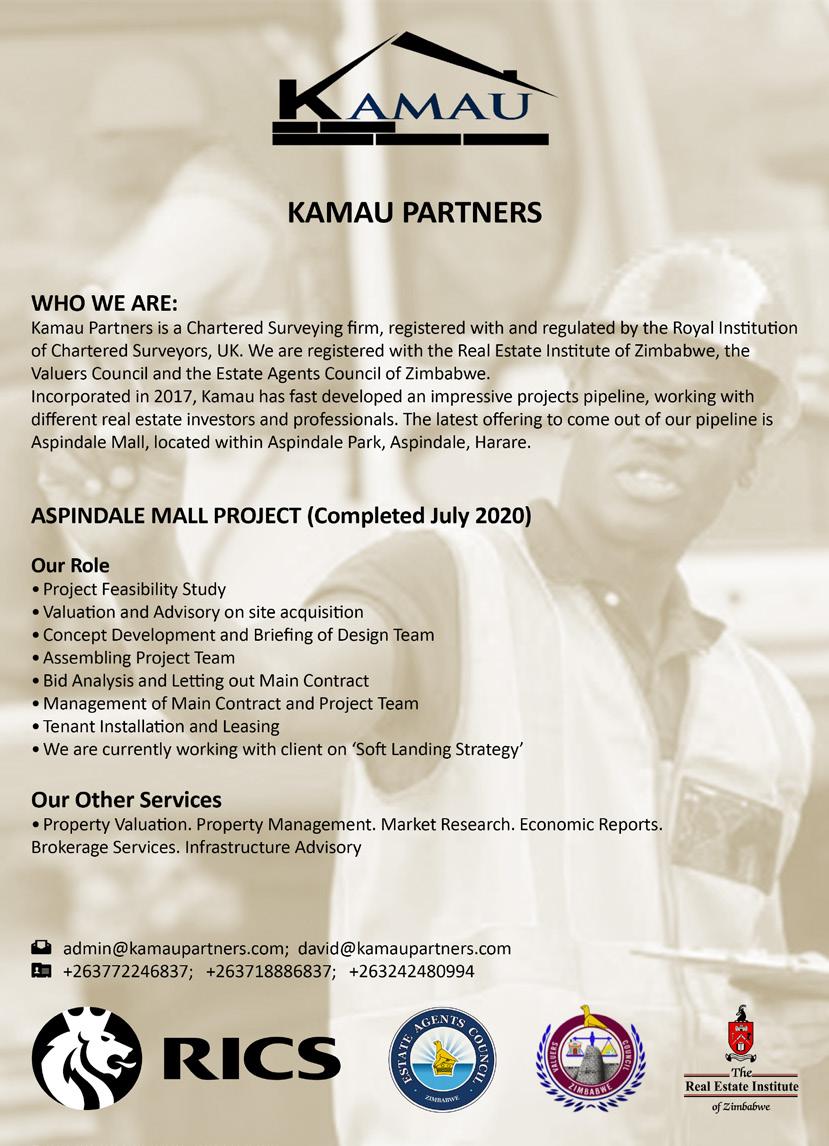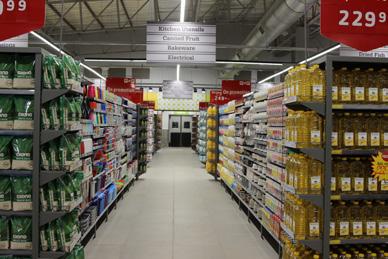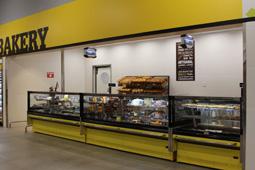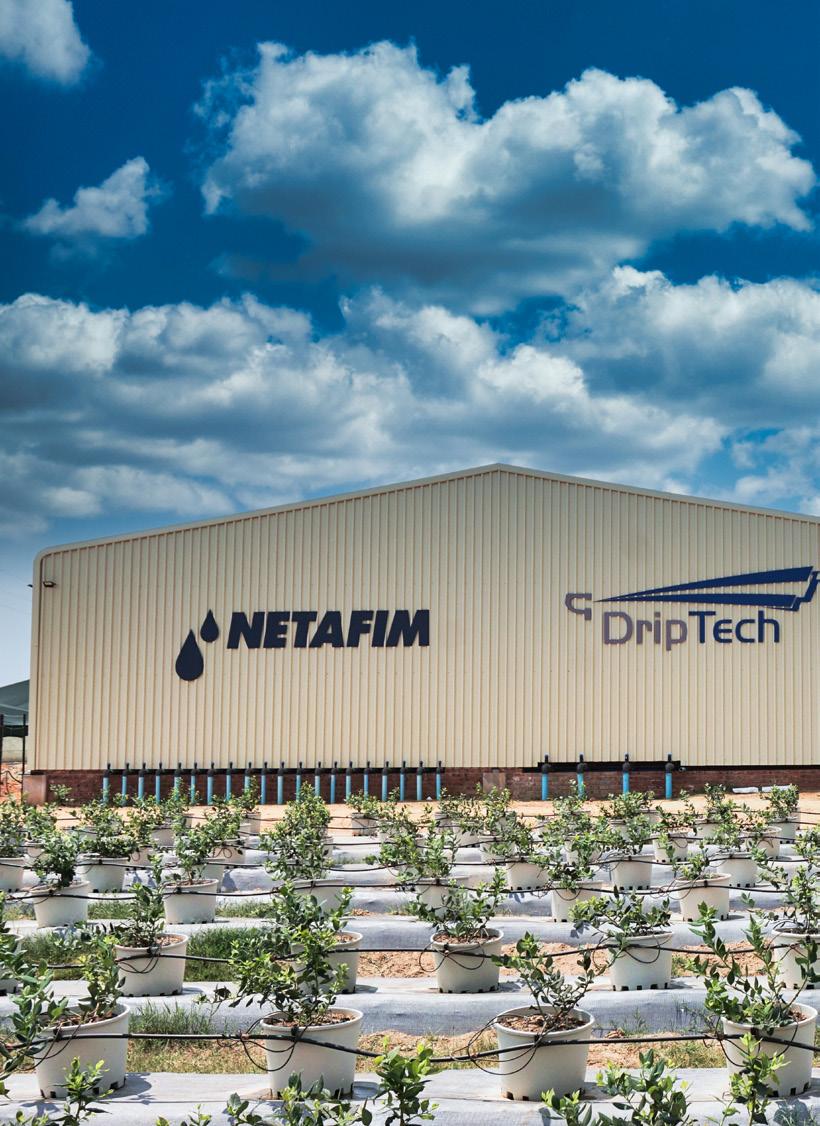
7 minute read
Driptech Assists Palmlife To Create A World Class Blueberry Farm
text: Michael Nott photos: Structure and Design additional photos: Craig Torr
The Torr brothers, Stuart and Craig, together with the Henson family (DripTech) have recently set up a major blueberry producing farm in Mashonaland East at Ivanhoe Farm in the Enterprise area along the route to Mrewa. The project, under the name of Palmlife Pvt Ltd, has quickly become a major producer and exporter of the prised and highly valued fruit. Blueberries, which occur in the wild in North America and parts of northern Europe, are now being celebrated as a ‘super food’, low in calories and high in anti-oxidants, vitamins and minerals.
Advertisement

The project was started in July 2019 with the first planting of 10 ha being in October of the same year. The farm is about 45 hectares in total with around 30 hectares of blueberry production planted to date. It’s a very intensive and highly automated farming project which includes not just producing the fruit but also strict quality control, refrigeration, packaging and transport for both the local and international markets. Production this year is around 100 tonnes, off the first 10ha planted, with next year expected to be close to 600 tonnes, off 30ha. A further 14ha will be planted in april 2021, taking total production to 44ha of blueberries. Their packaging house has the capacity to process 1,000 tonnes, so there’s plenty of capacity for expansion.
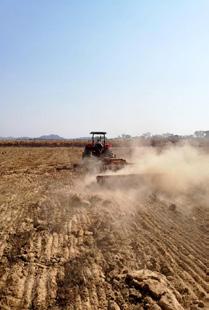
WORK IN PROGRESS
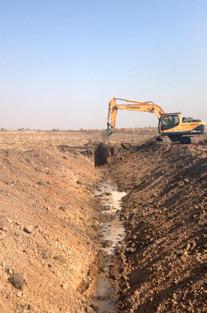
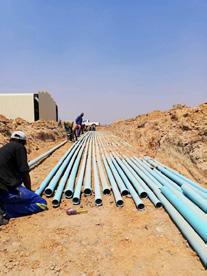

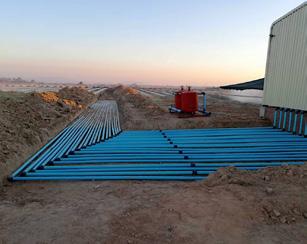
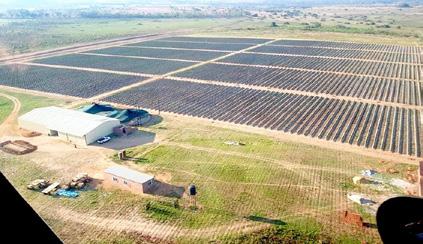
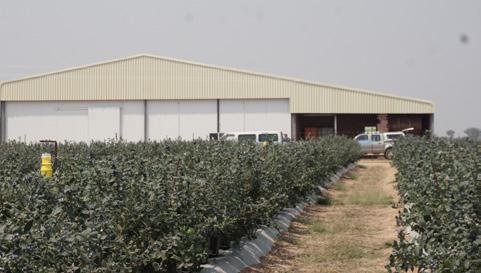
The farm is a major source of employment for locals with the number of workers during the peak season reaching 600+ people – providing opportunities and training for both skilled and unskilled labour. Palmlife exports to South Africa as the harvesting season occurs a few months earlier here, as well as to northern Europe and the UK which has winter during our summer harvesting season. The local season runs from July to November. 90 percent of the local crop finds its way to the UK and the EU market and Palmlife is exploring the Asian market. The demand is high internationally – and is increasing locally - as Zimbabweans are falling more in love which was once a fairly exotic delicacy. Blueberries are now generally available across the world in retail outlets for most of the year. which resembles dense shade cloth. The plants grow in a special potting medium called LeGro, imported from Holland in huge bags. LeGro is made up from a carefully formulated mixture mostly made up from vermiculite, peat bog and coconut fibre. This ensures that each plant has the identical growing base – in conventional soil based planting the makeup of the soil can vary a lot within just a few metres. It also allows the producer to carefully regulate the EC (electrical conductivity) and the pH (which measures how acid or alkaline the growing medium is) and to control precisely the amount and type of nutrients each plant receives. Blueberries are susceptible to pest infestations like thrips, capsid and other bugs which can quickly spread and decimate a whole crop, so it’s vitally important to monitor and control plant health. The excess water which drips out the pots can also be analysed to ensure the plants are getting just the right amount of nutrients.
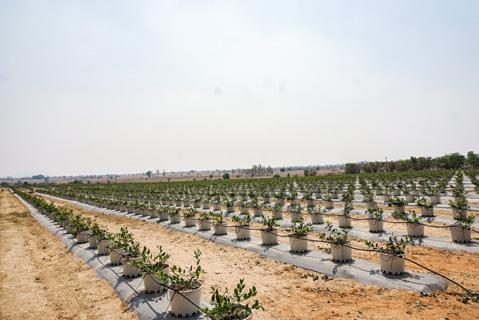
The highly sophisticated irrigation system
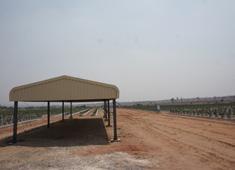
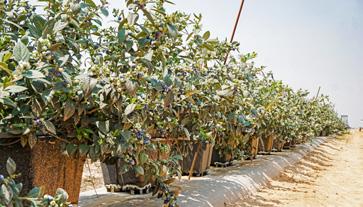
was designed and installed by Driptech in

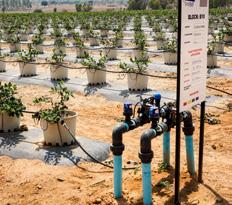
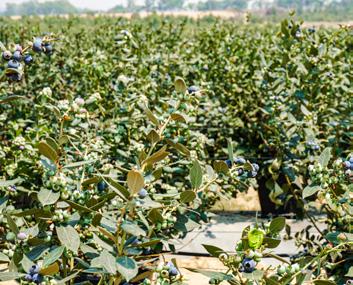

conjunction with Netafim (for whom Driptech are the local agents) who are innovators and leaders in this field. Simply put water is pumped from a dam or reservoir to holding tanks where it can be tested for pH and EC and the required nutrients can be added. The water quality is measured and controlled by the computerised Netafim/Netajet system. The fortified and enhanced water solution is then pumped to each and every plant pot in exactly the same amount and at the same time. The computerised system can be minutely adjusted to account for differing environmental factors like too much or too little natural rainfall, and a host of other aspects. This ensures that resources like water and fertiliser are optimally used with no excess wastage. It also means that the minimum amount of pest control can be used and ensures that all the chemical additives conform to strict international health and safety standards. It also means that workers are not exposed to harmful chemicals, which sometimes happens with crop spraying, and protects the environment. Conserving water is becoming increasingly vital as Zimbabwe adjusts to the effects of climate change – so while it seems very technical it’s actually a very ‘green’ and efficient farming method.
Driptech not only designed and installed the whole setup, they also provided the pumps, tanks, piping, arrow drippers and the Netafim monitoring components. They also provided training for the operation and maintenance of the complex and sophisticated system which has been tailor-made for Palmlife’s requirements.
Once the precious berries have been harvested – manually – they are then sent to the pack house for processing. The pack house is completely sanitised to ensure the berries are kept in peak condition and to prevent unnecessary mould or decay. The specially designed pack house, built largely from IsoBoard, is carefully temperature controlled to around 5 degrees centigrade to ensure the fruit stays at it freshest. The pack house and cooling and refrigeration was put together by Agristructures, Kingkold and Natural Air.
The berries are first graded and checked by quality control to ensure consistent size, weight, ripeness and colour and any inferior product is rejected. The grading section has special LED lighting to ensure the sorters can select the berries correctly. The berries are then kept in temporary storage where they are cooled to around 1 degree centigrade. They are then packed into individual branded cartons and the cartons are assembled into palettes for transportation. The international market in the EU has very stringent regulations for packaging. The final palettes are then dispatched through independent logistics companies to the local retailers, to the airport for overseas markets or to agents for sending the berries by sea freight. The quality control and packing sections alone employ around 90 skilled workers!

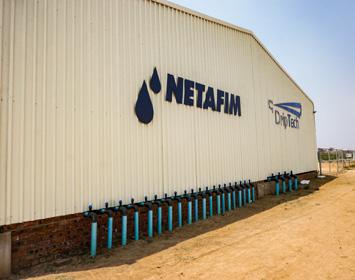
Since 1995 Driptech has been supplying agricultural projects, like Palmlife, with a wide range of equipment and irrigation solutions tailor made for different needs and different applications from small to large scale. Not only do they supply the relevant products they also offer great advice, technical planning and backup.
To find out more visit one of their branches located on Harare Drive in Pomona, Second Street extension in Belgravia, Glenara Avenue in Eastlea or Coventry Road in Workington. They also have a regional branch on Tembwe Street in Mutare.
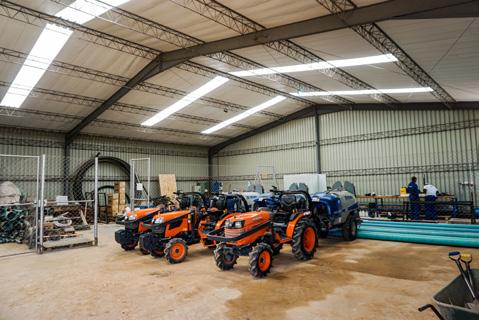
You can call +263 (0)867 700 7000 for enquiries Or visit their website: www.driptech.co.zw
